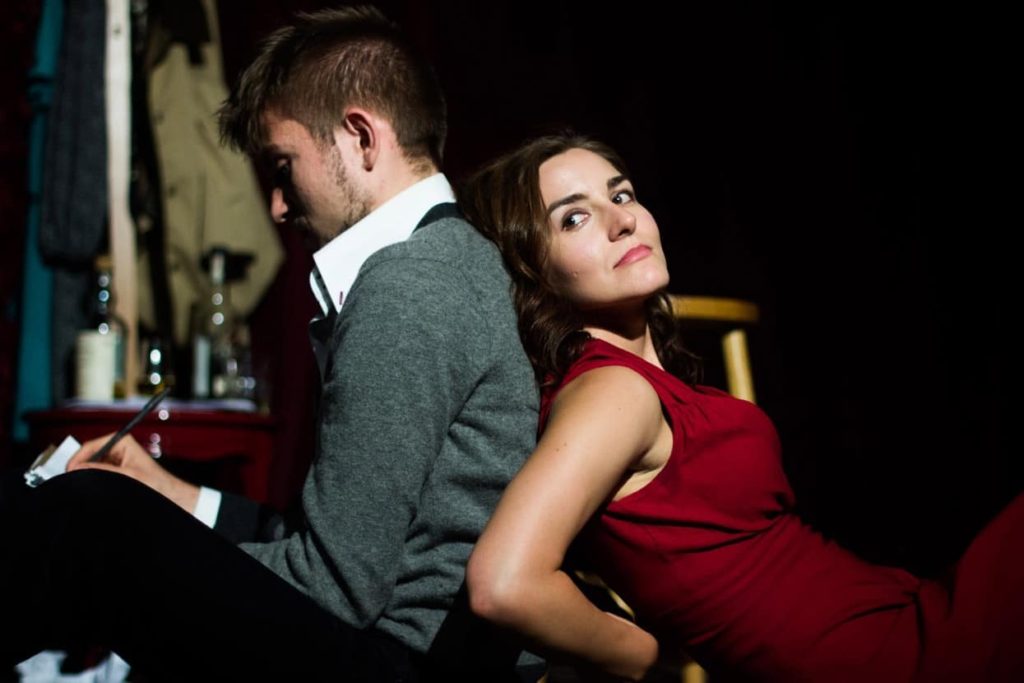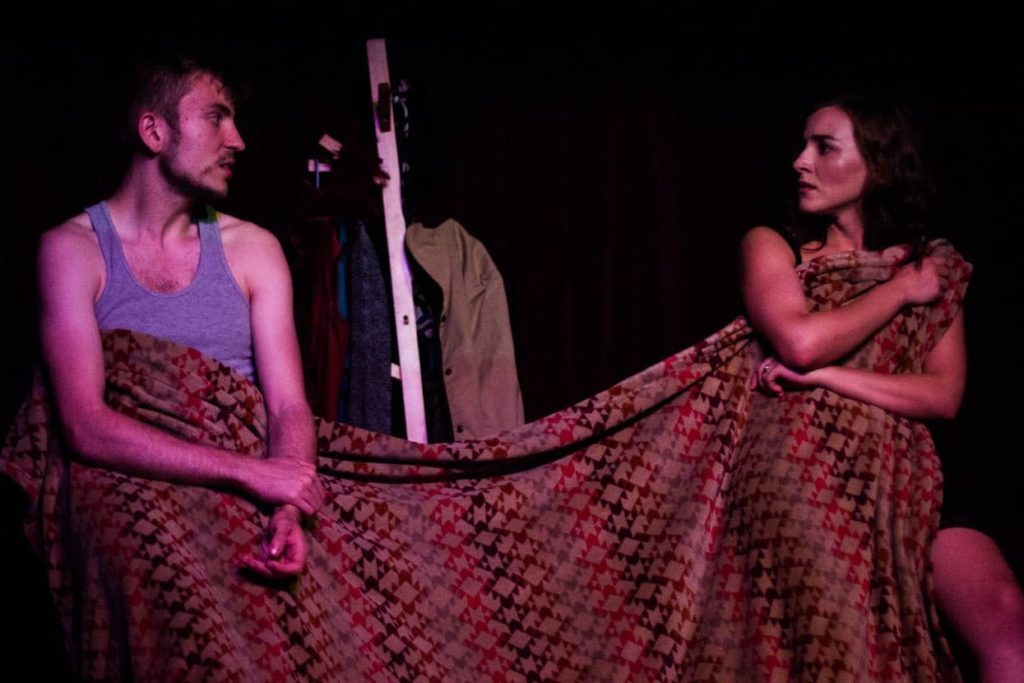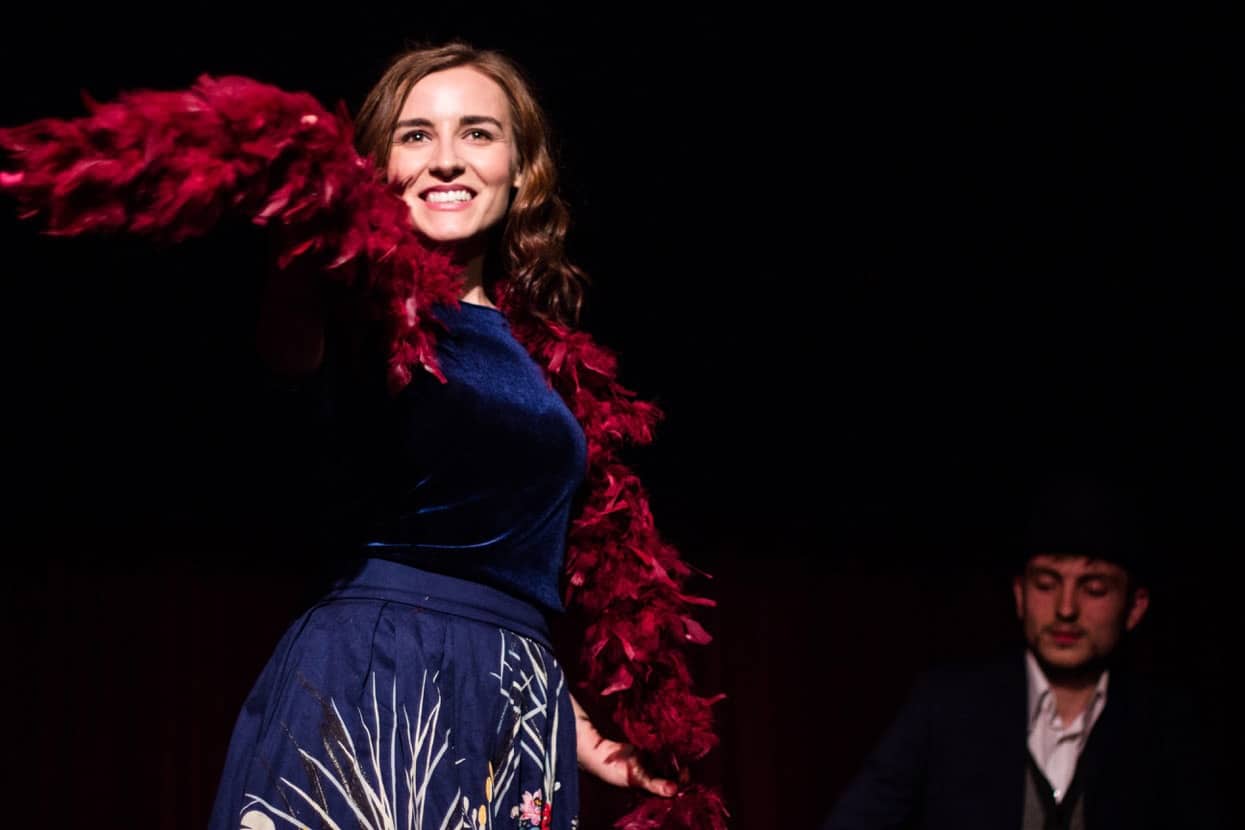
The unique nature of “The Story of Two Poets” was clear even before Jalopy Theatre’s lights went down. The musical is entirely in Polish with English supertitles. Polish and English versions of the playbill were passed out, and Polish sweets called drożdżówki z serem (sweet cheese pastries) were set out on a table for audience members.
The show is an adaptation of the book “Listy na wyczerpanym papierze” (The Letters on Depleted Paper), a collection of love letters between two 20th century Polish poets who shared a secret romance in the mid 1960’s – Agnieszka Osiecka and Sir Jeremi Przybora.
Both Osiecka and Przybora are famous artists in their native Warsaw. Their correspondence was first published in 2010; their relationship was unknown to the public before then.
Though these poets are renowned in Polish culture, they are completely unfamiliar to most Brooklynites.
Anna Rak, who played Osiecka, said that unfamiliarity was one of the things that inspired her to adapt the play with Maks Kubis, who played Przybora, and director Ewa Szewczyk. “It all started with a casual conversation about Sung Poetry and how little people know about Polish literature,” Rak wrote in an email.
“The whole script is really just their words, their love letters. Our goal was to share the story of these unique artists in a way that would allow the audience to resonate with it and find something to identify with.” The show is presented by Rak’s Eastern Bridge Theatre Troupe, whose mission is to bring Polish art to new audiences. This is the Troupe’s first show – Rak is an actress from Krakow, Poland. She lived in London from 2011 – 2015 and came to New York to attend the Stella Adler Studio for Acting. She has performed Off-Broadway and now in her own company.
Language a barrier
Onstage, this translation and sharing of culture was done with varying success. Information was initially difficult to grasp for a non-Polish speaker, and there were times where either the translation (songs done by Jaroslaw Rybski) or my lack of cultural knowledge failed me. The endless metaphors in the script eventually felt overdone; though the show was adapted from original poetry, more characterization and structure still could be used to clarify the plot. A song about Agnieszka wishing for Jeremi to hit rock bottom feels out of character, and many of the conflicts arise and resolve without much clarity. It is difficult to know how much of this is the fault of translation. I did appreciate the challenge of seeing a show in two languages.
That said, Rak and Kubis were both entrancing, and I wished to understand Polish if only to never have to tear my eyes away from them. Their characters are adorably earnest and convincingly mad for each other, and their chemistry is undeniable even in letters.
Jeremi says that dancing with Agnieszka stops the randomness of all his previous dance partners, and the actors certainly make the pair seem fated. The 11 songs in the show flow beautifully as a part of the narrative, expressing the shifting thoughts of the characters in the moment.
The show was aided with a charming and cozy set that took advantage of the small Jalopy stage. A table and a coat stand were flanked by two stools, one for each poet, with books scattered on the floor between them.
Scene transitions were aided by the live piano music played by Erica Umhoefer.
I loved this show for its dramatic, sweeping love story played by wonderful actors. With translation, however, some details slipped through the cracks.
Photographs by Anna Kuzmina










